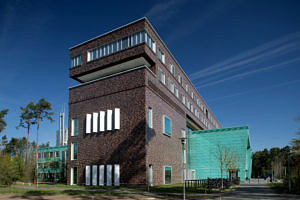About
‘Women in Science’ – Erlangen Symposium

The initiative behind “Women in Science-Erlangen Symposium” was first conceptualized by female scientists at Friedrich-Alexander-Universität (FAU) Erlangen-Nürnberg in 2018. We are convinced that a solid network of women must exist in order to tackle gender inequalities and gaps. We brought together female scientists at different career stages for a lively exchange at the first Women in Science Symposium in December 2018. During this event, we drew attention to gender imbalance though highlighting scientific achievements and career developments of female researchers from all over the world. After the success of the first conference, we decided to continue our journey.
We believe that several features make the Women in Science Symposium unique. First, the organizing committee is composed solely of female doctoral students and postdoctoral researchers from the Department of Chemistry and Pharmacy at FAU. Second, inspiring and outstanding female speakers are invited to present their research findings. Third, this symposium gives female researchers not only the opportunity to present their scientific achievements, but also to share their challenges and paths to success in academia. Last but not least, early-stage researchers can gain insight into career prospects, as well as build up networks and collaborations with well-recognized female scientists.
Although our main focus is women in science, the symposium is open to everyone regardless of gender or status. Therefore, we strongly encourage male, female, and non-binary participants, as well as young researchers, to attend. Besides invited talks and poster sessions, you will find different activities during the symposium, such as round table discussions or “brain-dating”, among others. Each symposium session or activity aims to present scientific work and promote further discussions and future collaborations, thus encouraging women to develop a strong network to success in academia.
This initiative would not be possible without the funding, boost and support from the DFG through the research consortia for promoting equality at Friedrich-Alexander-Universität Erlangen-Nürnberg, F3G.
